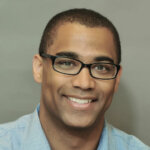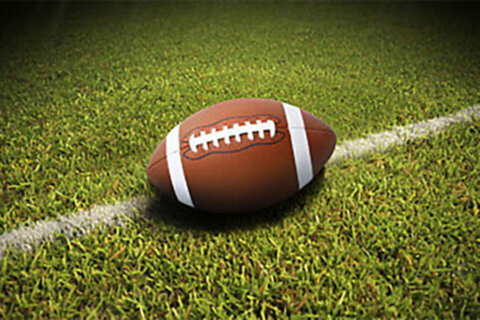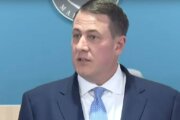SAN FRANCISCO — In an almost ironic turn of events, the NFL’s Opening Sunday fell on what might be America’s most universally patriotic day at a time when acts of patriotism are being called into question.
As I’m sure you’ve heard (ad nauseam) by now, Colin Kaepernick started what is best described as a resistance, refusing to stand for the pregame national anthem during the preseason and continuing that trend in San Francisco’s Monday night win to the Rams.
Kaepernick wasn’t alone this week. He was joined by teammate Eric Reid in kneeling during the anthem, and four other players on both teams raised their fists in solidarity.
Sunday, Marcus Peters raised his fist during the anthem in Kansas City. So did the Patriots’ Martellus Bennett and Devin McCourty in Arizona. In Seattle, every Seahawks player stood and linked arms with a teammate next to him and four Dolphins players knelt on the other sideline.
“I’m just stating that I’m black and I love being black,” Peters said to Kansas City’s Arrowhead Pride. “I’m supporting Colin [Kaepernick] and what he’s doing as far as raising awareness with the justice system. I didn’t mean anything by it. I locked arms with my teammates. I talked with coach [Andy Reid] and coach said it was OK if I wanted to express my thoughts and so I just expressed it.”
That’s exactly what these players should do. Nobody’s going to midfield and making a big demonstration. No one is defacing a flag or bloviating about nonsense. They’re simply not standing during the national anthem (which, apparently, contains some lyrics people of color don’t appreciate). If a reporter hadn’t arbitrarily noticed Kaepernick wasn’t standing and asked him why, I doubt that this would have become the huge story it has.
One of the most respected coaches of all-time, Tony Dungy, applied the best context to this situation I’ve seen to date. Dungy, who grew up in the 1960s and became the first black coach to win a Super Bowl, spent over two minutes speaking on the topic on NBC’s Football Night in America.
“I really appreciated it,” Dungy said of the protests. “If [my players] came to me and said, ‘Coach, I want to do this because we really think it’s important,’ I would support that.”
Dungy went on to share his own thoughts on protests in sports, citing the famous raised fists of Tommy Smith and John Carlos in a black power pose on the medal stand during the 1968 Olympics.
His father, a World War II veteran, told a then 12-year-old Tony something that should ring true today: “He said, ‘Do what you think is going to make the situation better.'”
The coach went on to say there was a time he didn’t stand for the anthem, but as he grew as a Christian, his form of protest evolved into standing and praying for the country.
The resistance hasn’t been limited to football, either. Soccer star Megan Rapinoe had a silent protest of her own before a Seattle Reign FC game (but changed her stance a bit when hosting the Washington Spirit Sunday night). Two WNBA teams were fined for wearing Black Lives Matter T-shirts and refusing to talk basketball to the media. NBA players were indisputably the first to take a stance, with Carmelo Anthony perhaps being the most vocal of the league’s superstar players to speak out.
It’s important to make this distinction: Not a single one of these athletes have said they hate America, just that it needs to be better. This, I’m pretty sure, also happens to be a platform an entire presidential campaign has been built on. The notion that silent player protests are disrespectful of our military or somehow cheapens their sacrifices is foolish.
Furthermore, the shortsighted “shut up and play” response to these players is misguided. We can’t have it both ways; we can’t criticize these players for staying silent in the face of matters that effect people of color, and then shout them down when their views or form of protest don’t jive with popular sentiment. This flies in the face of one of Papa Dungy’s best lines of Sunday night.
Dungy added that his father would not be offended by these player protests. “He would tell them what he told me …’That’s why we fought: to make America the land of the free and the home of the brave so people who look differently — or even think differently — can still have their views expressed.”
That’s why patriotism is much like religion: It comes in different forms and it’s wholly subjective. There’s no handbook for this, so there’s really no wrong way to do it. The sooner we recognize that, the sooner we can stop talking about what these players are doing and start talking about why they’re doing it.
Now let’s talk about what happened on the field in the Week 1 NFL Recap.






